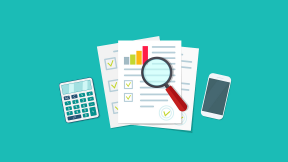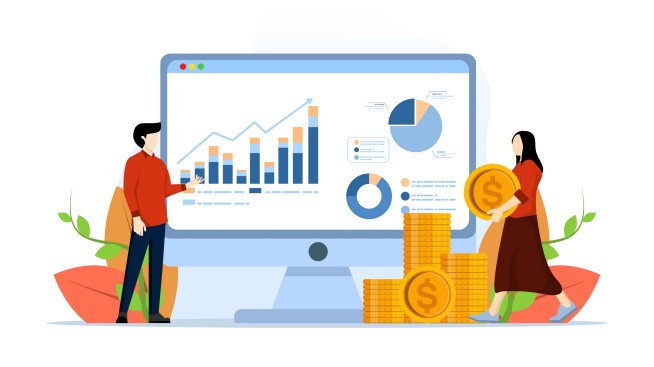What credit score do you start with?

You're about to apply for your first credit card — congrats! This is a great first step on your credit journey. But how does it all work? What credit score do you start with? Do you start with 0 and work your way up, or do you begin with a higher score?
When it comes to your starting credit score, you actually won't have an exact number for a few months after you've opened up your first line of credit. Unless, for example, if you were an authorized user on someone else's card account, it's possible you started building up your credit this way and have it reflected in your personal credit report. The starting credit score is different for everyone based on their circumstances (however, it will not be 0).
In this article, you will learn about:
- When your credit history starts
- What a good credit score is
- Tips for establishing credit
- How to monitor your credit score
When might your credit history start?
If you're an authorized user on someone else's credit card account, it's possible that your credit history has started before you even take out your first credit card or loan. Being an authorized user is a helpful way to establish credit before you open your own lines of credit provided the primary cardmember makes the account's balance payments on time. When the bank or credit card issuer reports the card's payment history to the credit bureaus, you can begin to build a positive credit history.
Authorized users are added by the primary user (as long as requirements such as age are met) to their account and may start building credit due to their usage of the credit card. However, the primary user of the card ultimately remains responsible for making payments.
If you aren't an authorized user, then your credit history begins when you're approved and use your first line of credit, whether that's a credit card or loan. Generally, you have to be 18 to open up a credit card account in the U.S., and may have to show proof of income.
Keep in mind that even though you will start building your credit right away, your first credit score and credit history won't be reflected until about 3-6 months after opening your line of credit, according to Experian™. This may be because the bureaus need to set up a profile within their system to recognize you as a credit-bearing consumer for the first time. Updates to your score depend on how and when financial institutions report, collect, process and aggregate your data.
That said, you won't necessarily start with a specific score—everyone's situation is different, which gets reflected in your score. Regardless, you won't be starting at 0, nor will you be at the highest score.
What is a good credit score?
A good credit score depends on which scoring model gets used (see below).
As of May 2024, VantageScore® ranges are:
- Excellent: 781 to 850
- Good: 661 to 780
- Fair: 601 to 660
- Poor: 500 to 600
- Very Poor: 300 to 499
As of May 2024, FICO® score ranges are:
- Exceptional: 800+
- Very Good: 740 to 799
- Good: 670 to 739
- Fair: 580 to 669
- Poor: 579 and below
Do you have a credit card, but don't know what your credit score is? One way you can find out is by enrolling in Chase Credit Journey® and get your free credit score and credit report provided by Experian. Knowing this information is key to helping you understand how you can take appropriate measures to help improve your score and establish your credit.
Tips on how to establish credit
Even before you take out your first credit card or loan, establishing healthy financial habits can be helpful as you begin your financial journey and begin establishing credit for the first time. These include, but are not limited to:
- Learning how to save
- Not overspending
- Understanding the importance of paying debts back on time and in full
- Creating and working within a budget
Additionally, your credit score is built upon a variety of factors, including payment history, credit mix and credit age. When you take out a credit card and start making on-time payments, you can start building up your portfolio. Having a diverse credit portfolio helps establish a good credit mix and history.
For example, having a credit card and an auto loan can help establish strong credit in the long run as opposed to having just one line of credit open. Of course, you want to make sure you can afford having multiple lines of credit—payment history is key, and if you can't make your payments on time, you could risk hurting your credit score.
How to monitor your credit score
Now that you've got a credit score, learned what it takes to establish credit and help improve your score, you'll want to keep an eye on things. Monitoring your credit score is a great way to help make sure your score is in a healthy place. If you regularly check your score and your credit report, you can be proactive in catching errors or possible fraudulent activity. Catching these instances early on and addressing them with your lender or issuer can help keep your score healthy and keep you accountable around your finances.
You may help yourself to monitor your credit for example by enrolling in Credit Journey® and signing up for credit monitoring and identity monitoring alerts. These notifications will help indicate when there's been a major change to your credit score, or if there's been a data breach and your sensitive information could be at risk. Having this free tool at your fingertips is a simple way to monitor your credit score without hurting it.



